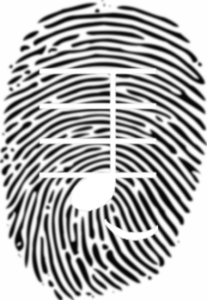Musical Identity
Do you have one?

Being Many
Among globalization scholars, a frequently raised issue is that of cultural identity. With so many cross-connections in our daily lives, often mixed or overlaid, it is sometimes quite difficult to define what characterizes us: whether we speak English or Portuguese (or other languages), whether we are national, international, or regional, what our type of food, clothing, or music is, whether we are online or offline. Recent studies suggest that the most suitable answer to these questions is necessarily inconstant, that is, we assume, exchange, and blend different identities according to our interests or needs, and we do not always bother to define them, as in most cases it is difficult for them to be summarized in a single cultural context. The Argentine sociologist Néstor Canclini refers to this as “untranslatable multiculturalism,” and, consequently, states that “every cultural policy is a policy about the imaginaries that make us believe we are similar.”
Being One
Contrary to this trend, there is an imaginary that is intended to be quite homogeneous, which is that imposed on the artist or, in the case that interests us more closely here, the composer. An identity is expected of him, that is, that he remains true to himself in the creative act, staying aloof from market pressures, clichés, or automations of musical creation. This idea is implicit, for example, in the expression “finding your own voice,” commonly understood as the ultimate goal of those who create music.

Being One and Many
But there are many ways to create, produce, and market music. You can use sheet music, or you can work with improvisation. You can compose in DAWs (Digital Audio Workstations), like Reason, or you can create in a group with your band. Experience tells me that each of these paths leads to very different results, and most likely, during your musical activities, you will mix all or several of them, as convenient for you. You need to make different music for different occasions and, more importantly, you undergo changes constantly (moods, personal goals, experimenting with new things, etc.). How then can you define a single identity?
In my case, I gave up on seeking that stable identity: I accepted myself as being several Brunos, and we are fine with that, thank you! If you browse a bit through my portfolio, you will find there music of various styles and shades, some more experimental, others more pop; some notated, others electronic; some for concerts, others for videos, shows, or performances. Interestingly, however, thinking about all this variety, I do not feel superficial or like I am “selling out” to circumstances foreign to my being. I can sincerely perceive myself in each of these pieces, as different as they may be from each other, and this poses an interesting paradox: after all, do I have my identity or am I divided into many? The answer, for me, involves a reversal of perspective, that is, it is not my “identity,” as something in itself, that will magically transfer to the music I make. On the contrary, it is the music that I make that, over time, defines and redefines my identity as a composer. Time, this concept we invented to explain the changing of things, is the key to understanding this dynamic and continuous identity, which today is one thing, but tomorrow may become another, though it does not cease to be the same. Make your music as it comes, consider the circumstances surrounding your work, and discover, through the passage of time, the wonderful identities that you are!
Learn or Order from Bruno Angelo
A real composer to work with you.
